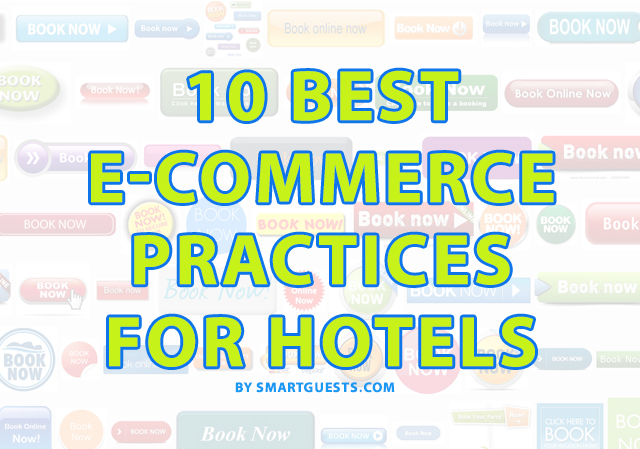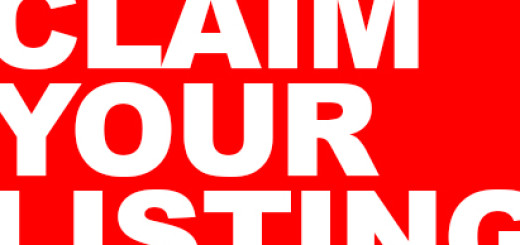10 Best E-commerce Practices for Hotels
How to Convert Lookers into Bookers
With 57% of all hotel bookings made online and 97% of all travelers searching for a place to stay using the Internet, the importance for hotels to adapt best ecommerce practices is more important today more than ever. Your website should be your property best sales representative, persuading potential guests to book a room with you and not with your competitors.
The e-commerce industry is dominated by online retailers, but this does not mean that you can’t implement their best practices to turn your hotel into a booking magnet. Here are the 10 best e-commerce practices that every hotel should have.
1. Use High Res Photos
No guest in his or her right mind would book a hotel without seeing photos of the property first. Beautiful photos is a deal breaker when it comes to almost all hotel bookings. Make sure that you use high res photos on your hotel website and make sure that you upload new ones regularly.
Keep in mind the three tips below:
1. Make sure your photos accurately represent your property. A lot of guests have complained about how the photos a lot of hotels post online are deceiving.
2. Invest in a good professional photographer. This is one aspect of your marketing that you don’t want to scrimp on.
3. Regularly update your photos to keep interest.
Hotel Photos: Pinterest for Hotels: What You Need to Know
2. Build Your Credibility
Let’s face it – there are unscrupulous hotels who don’t care an iota about their guests. They trick their guests, overpromising in terms of their facilities and amenities and delivering sub-par service. This is why a lot of travelers have developed a healthy level of skepticism toward hotels and this is why it is important that you convey credibility on your website.
Here are a few tips on how to build your credibility:
1. Link your website to your social media networks.
2. Display guest testimonials on your homepage.
3. Link your website to your TripAdvisor and Yelp listing.
3. Make It Extremely Easy To Book a Room in Your Hotel
The more complex your hotel’s booking or checkout process is, the less likely travelers will book with your property. Remember, in ecommerce, the goal is to minimize friction in the buying process, or in the case of hotels, in the booking process. This means that you have to make it easy for travelers to book a room with you. Drive More Bookings with Videos
To do this you should…
1. Avoid long checkout forms and asking for too much information
2. Use autofill for your forms (i.e. The City and State Fields automatically completes when you enter your zip code)
3. Make the checkout process intuitive
4. Display Customer Service Channels Prominently
Best e-commerce practice dictates that you should always be reachable to answer questions from those who want to book a room with your hotel, but need their questions answered first. Not having this information prominently displayed on your site can spell a difference between a non-booking and a successful booking.
The following are the information that you need to have on your website:
1. Your hotel’s customer service hotline or 1-800 number
2. Your customer support email
3. Live chat tab
5. Make Your Website Easy to Navigate
Travelers won’t book with your hotel if they can’t find the information they are looking for. Navigability is an important component of user experience and user experience is an important aspect of successful e-commerce.
Aside from a great site structure, you can make your website easy to navigate by:
1. Having properly structured and labeled menu
2. Using navigation aids such as breadcrumbs
3. Having an easy to understand URL structure (for example: www.yourhotelname.com/checkout when travelers are on your checkout page)
6. Have a Single Call to Action Per Page
A call to action is essentially a statement to elicit a certain kind of response or a specific action for your site visitors. Examples are “Book Now” and “Make A Reservation Today.” Sometimes, hoteliers and hotel managers cramp several calls to action in a single page. This only confuses people and would turn away potential guests instead of attracting them.
Here are a few pointers to help you get that discipline of using just one call to action on a page:
1. For your homepage, determine what your hotel really needs right now. Do you need more bookings? Then put a booking-driven call to action. Do you need more social media followers? Then probably invite them to follow you on Twitter or like your Facebook page.
2. Base your call to action on the content of the page. For example, on your blog page, it’s better if you invite your site visitors to subscribe to your email list than a sales-oriented call to action
3. Always put your call to action on a prominent area on your website
7. Ensure That Your Website is Mobile Friendly
A lot of hotel bookings are now taking place via mobile devices such as smartphones and tablets. Majority of these bookings are last minute bookings, which means those who book via mobile devices are those who are in need of a hotel accommodation on the same day. It’s a great revenue source for your hotel, which is why it is important to have a mobile-friendly site.
There are three ways for you to do this:
1. Have a separate mobile website designed and is probably the best option if you have the budget for it
2. You can also opt for a responsive web design, which essentially means your website automatically adjusts depending on the screen size it’s being viewed
3. The third option is to boost your presence on social review sites and local search directories such as TripAdvisor, Yelp and Google Hotel Finder. A lot of mobile bookings originate from these channels, so having a strong presence across these channels should be a top marketing priority
8. Ensure That Your Website is Secure for Financial Transactions
The Internet is always under attacked by various security threats and one of the issues that always make people wary is the security of their financial information online. This is why it is important for you to demonstrate that your website can handle financial transactions safely.
Here are a few things you can do to guarantee your guests that all financial transactions they perform on your site are secure:
1. Prominently display your SSL certificate and display security icons on your checkout page
2. Provide a guarantee statement that you won’t save any of the financial information that they’re going to provide
3. Only use payment gateways or ecommerce systems that are proven secure such as PayPal and Infusionsoft
9. Always Have an Email Collection Mechanism in Place
You always hear marketing experts say that the money is in the list. True enough, email still produces the highest return on investment (ROI) compared to other marketing platforms. Email marketing can produce more revenue from your hotel and it’s also a great engagement tool that you can use to send your audience constant updates. It’s also a great tool to build loyalty.
There are many techniques that you can use to do this and here are some of them:
1. Use a pop up. Essentially, this is a small window that appears when people arrive at your site asking them to give you their email address
2. On your checkout page, ask your guests if you could keep their email address so you can update them on the latest promos that you are running
3. Upon check in, ask them for their email address and ask them for permission if you can send them marketing related emails
Whatever technique you use, make sure that you offer a guarantee that you will respect their privacy and would not, in any circumstance, give their email information to other parties. Also, make sure that you convey the value of subscribing to your email list (i.e. first dibs on promos and discounts).
10. Use Persuasion Elements
Persuasion elements are basically marketing techniques that you can use to compel travelers to book with your hotel and not with your competitors. These are add-ons, but are important if you want to drive more bookings for your property.
Some of the most common persuasion elements you can use are:
1. Urgency – why do they need to book with you now? Are you giving them an offer they can only avail of within a specific period of time?
2. Scarcity. Are you offering discounted rates on a first come, first served basis?
3. Extraordinary proof points. Is your property a historical landmark in your vicinity? Is it just across a popular tourist destination?
Review the 10 strategies we gave you above and identify what you can implement now, what you can implement in the medium term and what you can plan for the long term.
10 Best E-commerce Practices for Hotels




